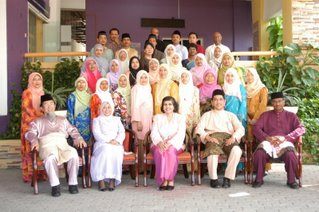The government yesterday announced the establishment of Akept - Akademi Kepimpinan Pengajian Tinggi - which emphasises on the leadership aspect of teaching staff in all public institutions (of higher learning). (Not long ago, the Star published an open letter written by a university lecturer in the Klang Valley). The establishment of the academy is indeed timely and welcomed. As a beginning, the academy is emphasising on the leadership skills of academics. In the future, the terms of reference of the academy perhaps, can be extended, focusing more on the people.
Leadership is not all about skills. It is about the quality of people that we have in ummah, in the society. Islam, as a din, regards man as the vicegerent of God on earth. Every man is entrusted onto him trust (amanah) and responsibility to rule and dominate the earth according to God’s will and purpose, as laid out by the al-Qur’an (Al-Baqarah (2): 30). In doing so – i.e dominating the earth – human must, at all time, hold on to the condition that they remain obidient to God, that is, being God’s servant, or ‘abd Allah. It is, therefore, pertinent to note that Islam views leadership as a trust that comes with responsibilities. As opposed to the Western tradition, where the trust is normally observed and emphasised in the form of organisational objectives, Islam relates leadership with the trust which is from God. Thus, it is clearly stated that the basic conception of leadership is man-centred.
The term din is not the same as the concept ‘religion’ as interpreted and understood throughout Western religious history. Here, din is understood in such a way that, all the basic connotations inherent in the term are conceived as gathered into a single unity of coherent meaning as reflected in the Holy Qur’an and in the Arabic language to which it belongs. Thus, as iterated by many scholars (e.g Syed Muhammad Naquib; Syyed Hossein Nasr), the primary significations of the term din can be reduced to four: (1) indebtedness; (2) submissiveness; (3) judicious power; (4) natural inclination or tendency.
 Staff of FSPPP.
Staff of FSPPP. Academic members of FSPPP.
Academic members of FSPPP.